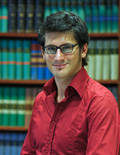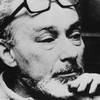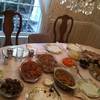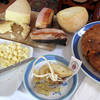Primo Levi. If This is (Only) a Narrator
Many attended the first two sessions of the “Voices on Primo Levi” symposium organized by “The Centro Primo Levi” of New York.
The audience was varied: university professors, experts in the field, representatives of the religious and civil local communities - whether Jewish or not - all set side by side to assist to some of the most original analyses on the figure of Primo Levi and his works.
The first session, on the 9th of September, was hosted by the Casa Italiana Zerilli Marimò.
At 7pm the PhD candidate Franco Baldasso and Uri Cohen, assistant professor of Modern Hebrew Literature, have guided the audience in a journey through the writings of Holocaust survivor Primo Levi.
What is the border between narration and witnessing in his works? Why do these contain elements of fiction, rather than totally stick to reality?
Moderated by the Director of the Centro Primo Levi of NY Natalia Indrimi, the conversation between the two young experts induced the spectators to understand that the “gray zone” in which Levi was stuck, right between poetry and prose, imagination and reality, should be considerate a necessary and non-renounceable element for the writer-witness to narrate his experience: an antidote to the psychological refuse to recount the days in Auschwitz..
A second reading-key was then offered by Luigi Dei, professor of chemistry at the University of Florence, Italy.
The expert demonstrated to the audience that Levi’s survival to the camps was essentially due to his knowledge of chemistry. Quoting extracts from the writer’s masterpieces, Dei offered an original explanation on the reason why Levi survived: being a chemist, he had the “privilege” to work in the camps’ laboratories. After a number of experiments, he managed to produce cigarette-lighters considered to be worth a piece of bread. This extra-food ration, according to our speaker, allowed Levi to survive for an extra 40 days. Just enough to be freed by the Russians.
The day after, the second session. This time no interpretations, no debates. Just one voice, Moni Ovadia’s. The Italian actor read excerpts from masterpiece “The Drawned and Saved”,. There, in the Conference Room of the Italian Cultural Institute, many people stood in careful listening for not less than an hour and a half. A general commotion finally brought the Institute’s Director Renato Miracco to ask for a minute of silence for the victim of the Holocaust, of yesterday and of today.
Below, info on the last session planned for Monday, September 15.
Center for Jewish History
15 West 16 Street, NYC
7:00 pm
Admission: $15, $10 for members of CPL, Casa Italiana Zerilli Marimò and
Italian Cultural Institute.
Tickets: 212-868-4444 www.smarttix.com
Primo Levi, Historian and Public Figure.
7:00 pm - Film premiere: “Primo Levi’s on Television” by Roberto Olla.
Italian w/English subtitles.
7:30 - 8:30 pm - The politics of memory - A conversation with Marc Greif
(American Prospect, London Review of Books), Robert Weil (W.W.Norton and
co-editor of the upcoming complete works of Primo Levi), Sergio Parussa
(Wesley College), Andrea Fiano (CPL).








































i-Italy
Facebook
Google+
This work may not be reproduced, in whole or in part, without prior written permission.
Questo lavoro non può essere riprodotto, in tutto o in parte, senza permesso scritto.